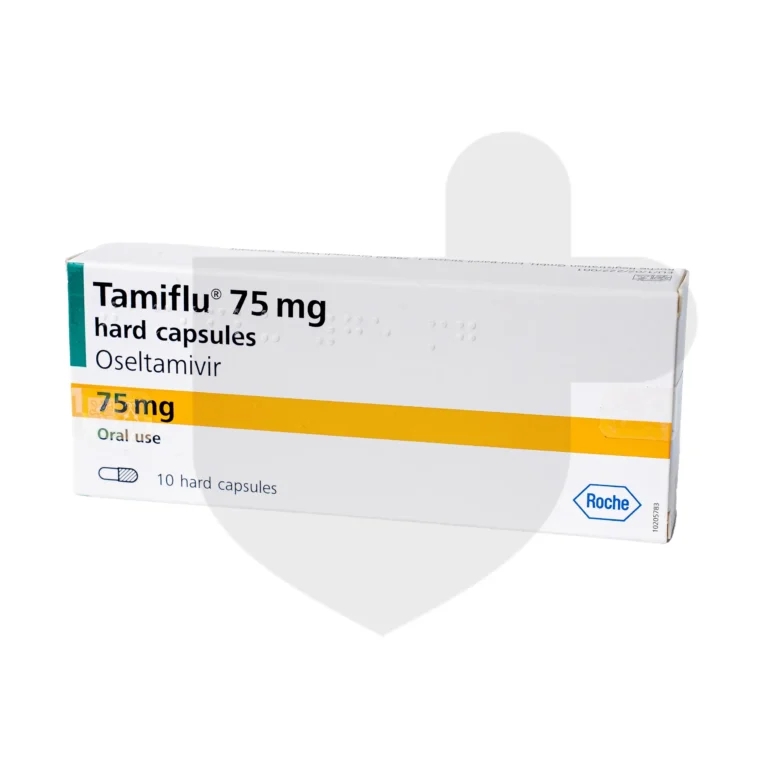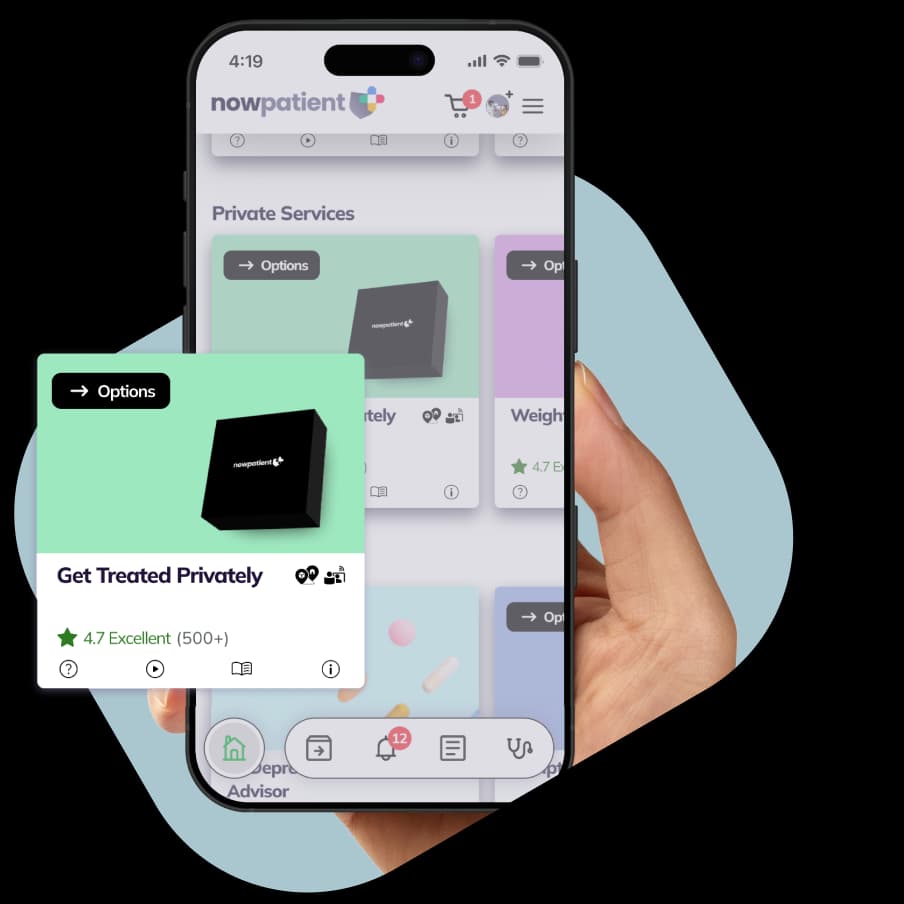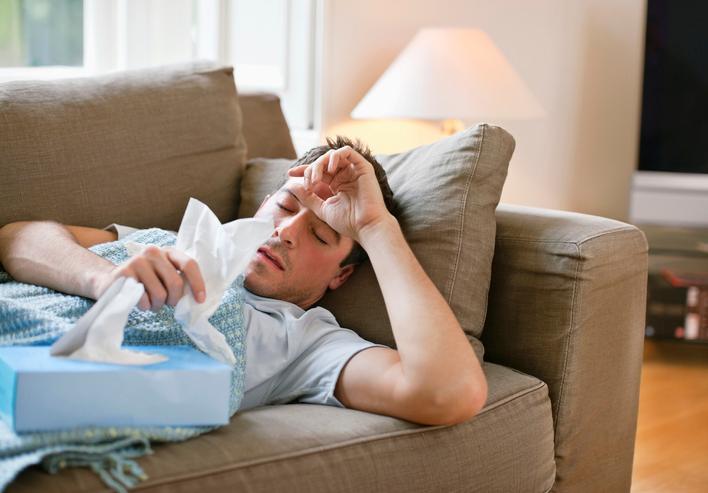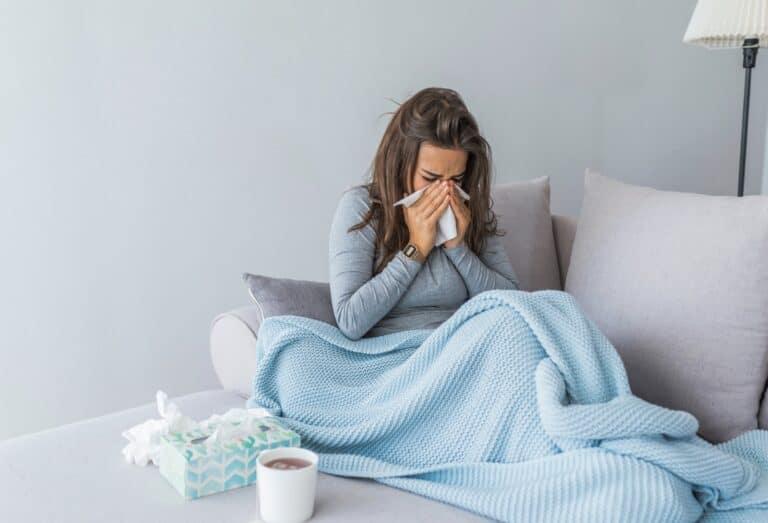Influenza Treatments
* Includes Free Private Prescription & Consultation.
† Applies to UK only.
START YOUR TREATMENT TODAY
Available Treatments for Influenza
SAFE PRESCRIBING
Get Started With the Right Treatment for You
MEDICAL INFORMATION
Influenza Key Facts
Influenza is caused by the Influenza virus and affects thousands of people in the UK every year leading to severe illness or even death. Here, we will take a closer look at what Influenza is, how it spreads, its diagnosis, treatments, and how to prevent it.
Introduction to Influenza
Influenza is a highly infectious disease caused by the Influenza virus that affects people of all ages around the world. Most people recover from flu, but it may lead to more severe illnesses, hospitalization, or even death. This is more common in the elderly, young children, and those with other underlying health conditions, such as asthma or diabetes.
What types of Influenza virus are there?
The Influenza virus is categorised into 4 types, A, B, C, and D. The Influenza A and B virus cause seasonal epidemics and have further subtypes. Wild birds carry Influenza A, hence the name avian or bird flu. Influenza C causes more mild respiratory viral infections. Influenza D affects cattle, but is not known to cause infections in humans.
What are the symptoms of Influenza
Common flu symptoms include:
- Fever
- Upper respiratory tract symptoms such as, coughing, a runny nose, sneezing, sore throat, body aches, and tiredness
- Gastrointestinal symptoms such as vomiting and diarrhea
Most people will recover from flu within a couple of weeks, but sometimes it can lead to serious complications such as pneumonia, bronchitis, or even death.
Risk factors for severe Influenza
Certain groups of people are at an increased risk of developing flu complications. This includes certain age groups, such as young children and the elderly. Also, pregnant women, those with a chronic illness, those with a weakened immune system, or those who are overweight with a high body mass index are also at a higher risk for complications.
Diagnosis of Influenza
Diagnosis of the flu, involves clinical evaluation by a healthcare professional, rapid Influenza diagnostic tests, antibody or antigen tests, or reverse transcriptase-polymerase chain reaction (RT-PCR). An early diagnosis will enable treatment and appropriate infection control measures to be taken.
Treating Influenza: Strategies and medications
Treatment includes rest, hydration, painkillers, and antiviral drugs. Antivirals, such as Tamiflu (oseltamivir), will reduce the severity and duration of symptoms when taken early. They are most effective when started within 48 hours of the onset of symptoms.
Preventing Influenza
Seasonal flu vaccines are recommended for those aged 6 months and older, with extra emphasis placed on those from high-risk groups. Immunisation will reduce the chances of getting the flu, as well as minimising how severe the illness will be.
In addition to seasonal Influenza vaccines, good hygiene, covering your mouth when coughing or sneezing, and remaining at home when unwell with the flu can all help to prevent its spread.
Influenza vs. COVID-19: Similarities and differences
Both flu and COVID-19 are respiratory diseases that share similarities in symptoms, transmission, and prevention. However, there are differences between them. Understanding the differences will ensure an accurate diagnosis, appropriate treatment, and effective measures during a pandemic.
Flu season: Timing and impact
Flu season normally occurs during the winter, although flu can occur at any time of the year. The timing and severity of these outbreaks may vary. Understanding these patterns of seasonal flu and their impact is crucial for the prevention, vaccination, and interventions to reduce morbidity associated with the flu.
Frequently Asked Questions (FAQs)
What is Influenza?
Influenza, also known as the flu, is a respiratory illness caused by the Influenza virus. Symptoms of the flu include fever, sore throats, coughing, a runny or blocked nose, headaches, body aches, and tiredness.
How does Influenza spread?
Influenza is mostly spread through droplets when a person with the flu coughs or sneezes. Droplets are inhaled or land in the mouths or noses of those nearby. The flu may also be spread through touching surfaces or objects that the flu virus is on and then touching your eyes, mouth, or nose.
Who is at higher risk of complications from Influenza?
These include:
- Young children under the age of 5
- The elderly, 65 years of age or older
- Pregnant women
- Those with chronic medical conditions such as asthma or diabetes
- Those with weakened immune systems
Individuals in these high-risk groups are advised to seek medical attention if they develop flu-like symptoms.
How can Influenza be prevented?
Immunisation with the flu vaccine each year is the best way to prevent Influenza. Other preventive measures include:
- Good hand hygiene
- Avoiding individuals who are sick with the flu
- Using a tissue when coughing or sneezing
- Avoiding touching your face
- Cleaning and disinfecting surfaces
Is the flu shot effective?
The effectiveness of the flu vaccine will vary each year. It will depend on whether the circulating flu strain matches the strains in the vaccine. The flu vaccine will, however, still provide protection against the flu even if the strains do not match. Also, those who do contract the flu, will have milder symptoms. Be aware, vaccines can cause side effects. Talk to a healthcare professional if you have any concerns about having the flu jab.
Can Influenza be treated with medications?
Antiviral medications can be used to treat the flu to reduce the severity and duration of the symptoms. These treatments are most effective when you begin using them within 48 hours of the onset of symptoms.
What should I do if I have Influenza?
If you have Influenza:
- Stay at home to prevent infecting others
- Get plenty of rest
- Drink plenty of fluids
- Take medications to manage your symptoms
- Cover your mouth and nose with a tissue when coughing or sneezing
- Wash your hands with soap and water or use a sanitizer
Can face masks help prevent Influenza?
Face masks can help prevent Influenza and other respiratory viruses from spreading. They stop droplets from being released when someone infected coughs or sneezes.
Is it safe to get the Influenza vaccine during pregnancy?
Yes. It is, in fact recommended, to help pregnant women protect themselves and their babies. The vaccine provides immunity to the mother and baby.
How does Influenza differ from COVID-19?
Influenza has a more rapid onset of symptoms than COVID-19, while COVID-19 has an increased risk of complications, especially in the elderly and those with other health conditions.
The future of Influenza prevention and research
Scientists continuously monitor the flu virus, how it changes, and the effectiveness of vaccines. The development of more effective vaccines, diagnostic techniques, and public health capabilities are all essential to reduce the impact Influenza has on global health.
By being informed, keeping good hygiene practices, and having your vaccination, we can all help reduce the threat of Influenza, protecting those most vulnerable in society.
Sources
- NHS Flu
- Mayoclinic – Influenza
- WHO – Influenza guide
- My.clevelandclinic – Influenza
- Betterhealth – Influenza
- CDC – Influenza
Medical Disclaimer
NowPatient has taken all reasonable steps to ensure that all material is factually accurate, complete, and current. However, the knowledge and experience of a qualified healthcare professional should always be sought after instead of using the information on this page. Before taking any drug, you should always speak to your doctor or another qualified healthcare provider.
The information provided here about medications is subject to change and is not meant to include all uses, precautions, warnings, directions, drug interactions, allergic reactions, or negative effects. The absence of warnings or other information for a particular medication does not imply that the medication or medication combination is appropriate for all patients or for all possible purposes.
Related Articles
OUR CUSTOMERS VIEW
What Customers Love About Our Service
We want everyone to be happy and healthy, that’s what keeps us going. Read what some of them have to say about us.
Medicines Experts
Meet Our Medical Team
We are a broad skilled and passionate group of clinicians with experience of operating in health systems in the United Kingdom & United States. Providing excellent care and advice is at the heart of everything we do. You can read more about our medical team by visiting the medical team page or learn more about how we curate content by visiting our editorial process























